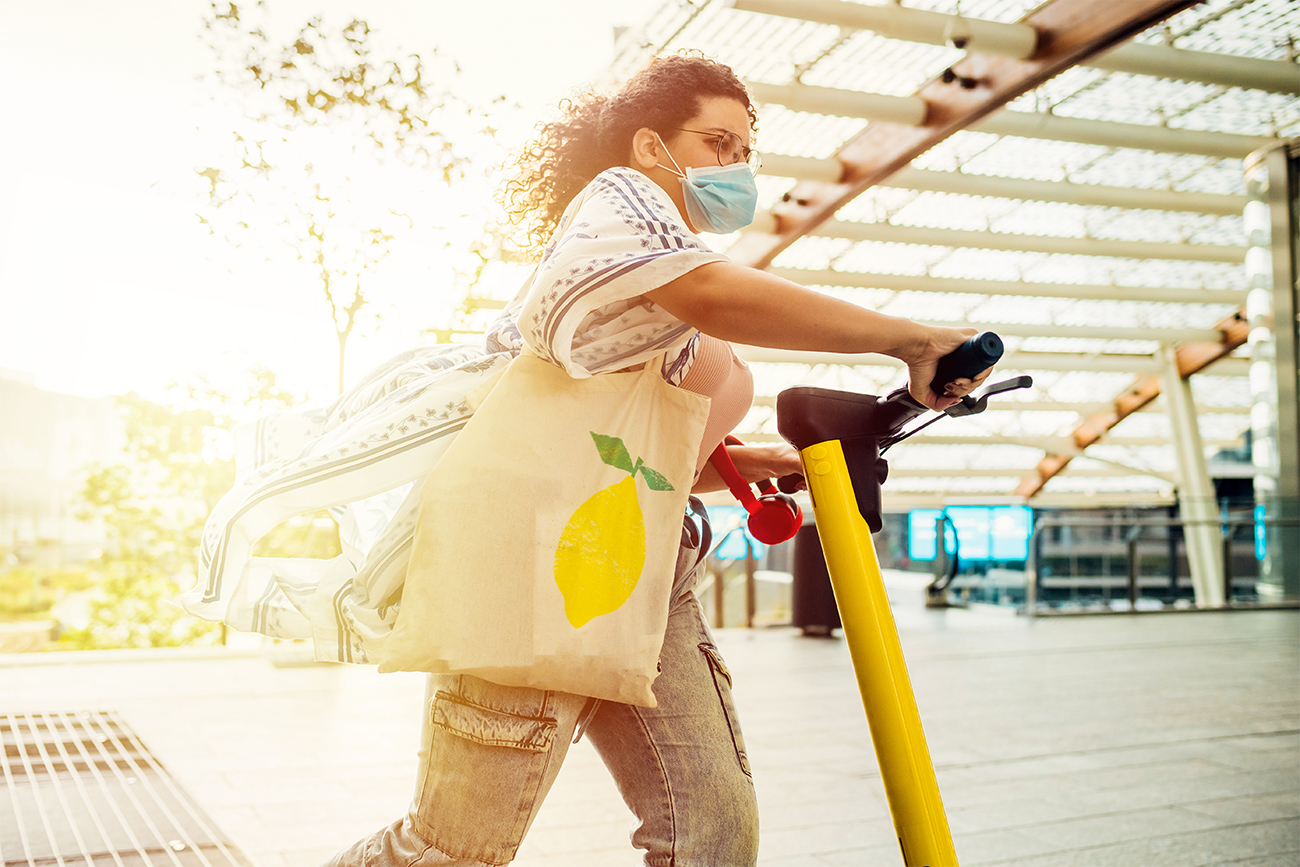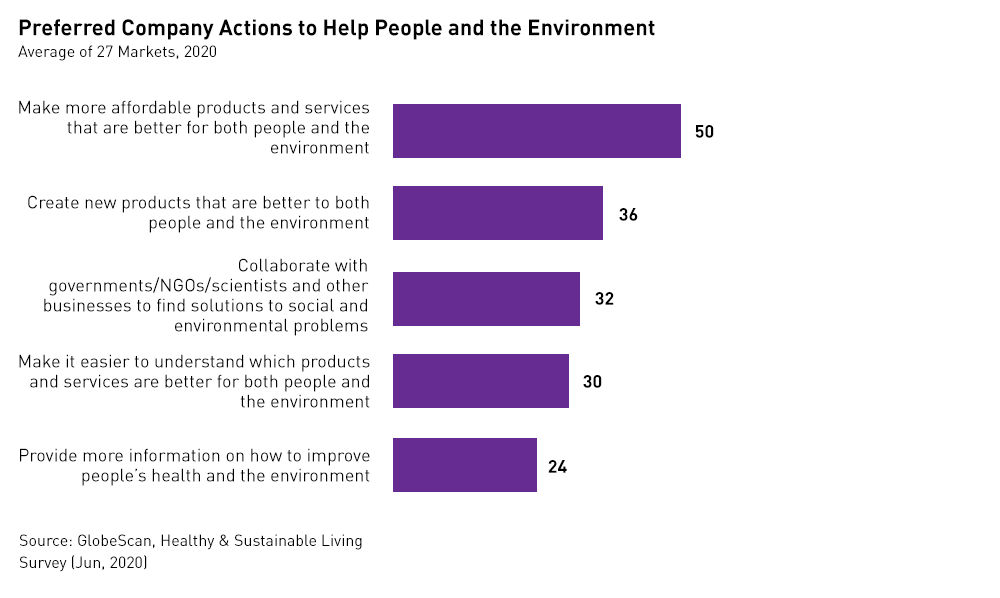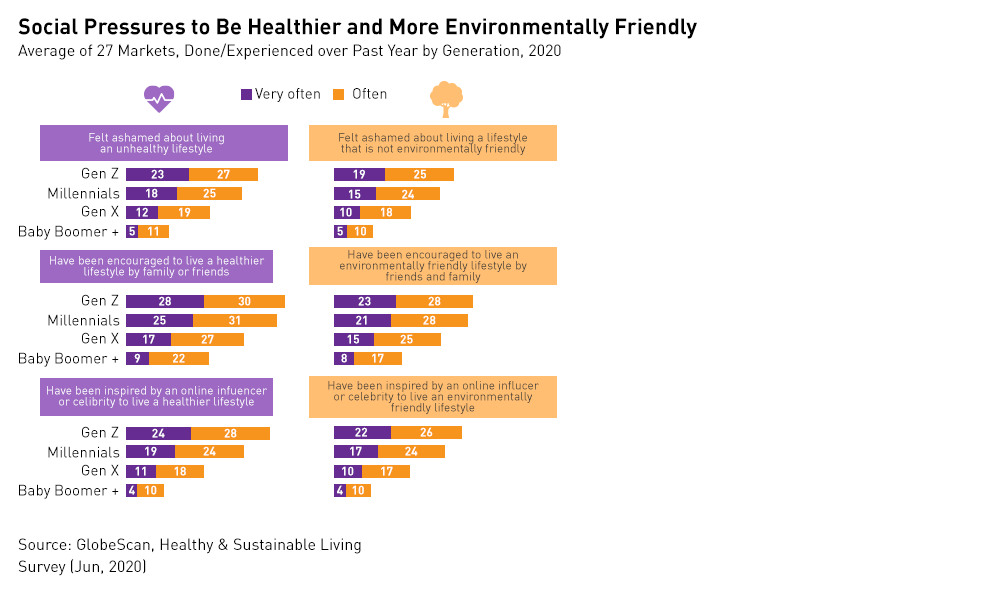
Even when health becomes the top priority for consumers, environmental concerns are increasingly at the forefront of consumer minds, according to new research. The latest survey by GlobeScan, in collaboration with CVS Health, IKEA, PepsiCo, Visa, and WWF International (27,000 consumers, 27 countries) highlights that Covid-19 has strengthened the importance of changing behaviour in order to have a healthier life and more eco-friendly future.
As we continue to live through the Covid-19 pandemic, human diseases are globally considered the most serious threats to consumers’ lifestyle. However, the pandemic has also triggered an increasing self-awareness to consumers’ individual and personal environmental impact. This means more people across countries believe that environmental degradation is the second most significant global problem, including climate change (60%), depletion of natural resources (60%), air pollution (56%) and single-use plastic waste (55%).
Environmental preservation is also a concern for marketplaces and retailers, and some of those have already adopted more environmentally sustainable ways of operating. For example, the well-known American marketplace, Esty embraced a sustainable delivery service in 2019 by ‘becoming the first global ecommerce company to offset 100% of carbon emissions generated by shipping’. Delivery may be free for consumers, but a cost is paid by the environment, and Etsy decided to act to offset its shipments contributing to global emissions.

According to GlobeScan’s Healthy & Sustainable Living Survey, consumers identified their desire to change their lifestyle a ‘great deal’ to a healthier (56%) and more sustainable (47%) routine. However, despite the good intentions, few pursue and make the actual shift which indicates a struggle to find guidance.
Retailers have an important role in providing guidelines and support to those who would like to take this step. Amazon’s ‘Frustration-Free Packaging Program’ is an example of how marketplaces can help consumers to make a sustainable choice. This program contributes to reduce the ‘overboxing’ problem as consumers who purchase more than an item will be able to pick an ‘Amazon Day’ and all the orders will be wrapped and delivered in only one parcel.

‘When trying to be healthier and more sustainable, people are most likely to alter aspects of their life if they perceive it to be relatively easy to do so’ writes GlobeScan. In fact, the study showed waste reduction and saving water/energy are two of the most popular behaviour changes people are open to adopt as these changes require minimal effort.
The more effort required to become eco-friendlier, the longer behaviour change will take to happen. The majority of people resist making changes to their lifestyle if such changes are time-consuming, such as generating renewable energy or repairing products instead of buying new ones.
Businesses should facilitate the behavior change process by reducing the struggles for consumers to adopt a more sustainable lifestyle. In this regard, H&M has recently announced its intention of overcoming the waste of virgin resources by revealing and making its recycling system accessible to the public. This consists in a recycling machine, called ‘Looop’, that shreds old clothes into fibers to create brand-new garments. In so doing, H&M has made it effortless to recycle an old wardrobe and renew it for £13.10 per piece.

NYU Stern’s Center for Sustainable Business reported a 50% of CPG growth between 2013 and 2018 produced in a sustainable way. Consumers are open to buy environmentally and socially responsible products which encourages retailers to adopt a sustainable business model and so, produce goods in accordance with human and environmental wellbeing.
Across all generations, 50% of consumers brought up their difficulties in pursuing a healthier and eco-friendlier lifestyle due to the unaffordability of goods and services. In order to overcome this problem and make consumers ‘involuntarily’ eco-friendly, Zara announced last year its aim to create clothes totally made of sustainable fabrics by 2025.

Young generations, Gen Z and Millennials, present the biggest opportunity to see the achievement of a more eco-friendly future, as they are the most inclined to change behaviour. Gen Z and Millennials are the most aware of the importance of preserving and protecting the environment, especially because of the higher perceived social pressure compared to older generations.


Let us develop a tailored solution for your business that will help you reach new international customers and grow your global sales.
get in touch